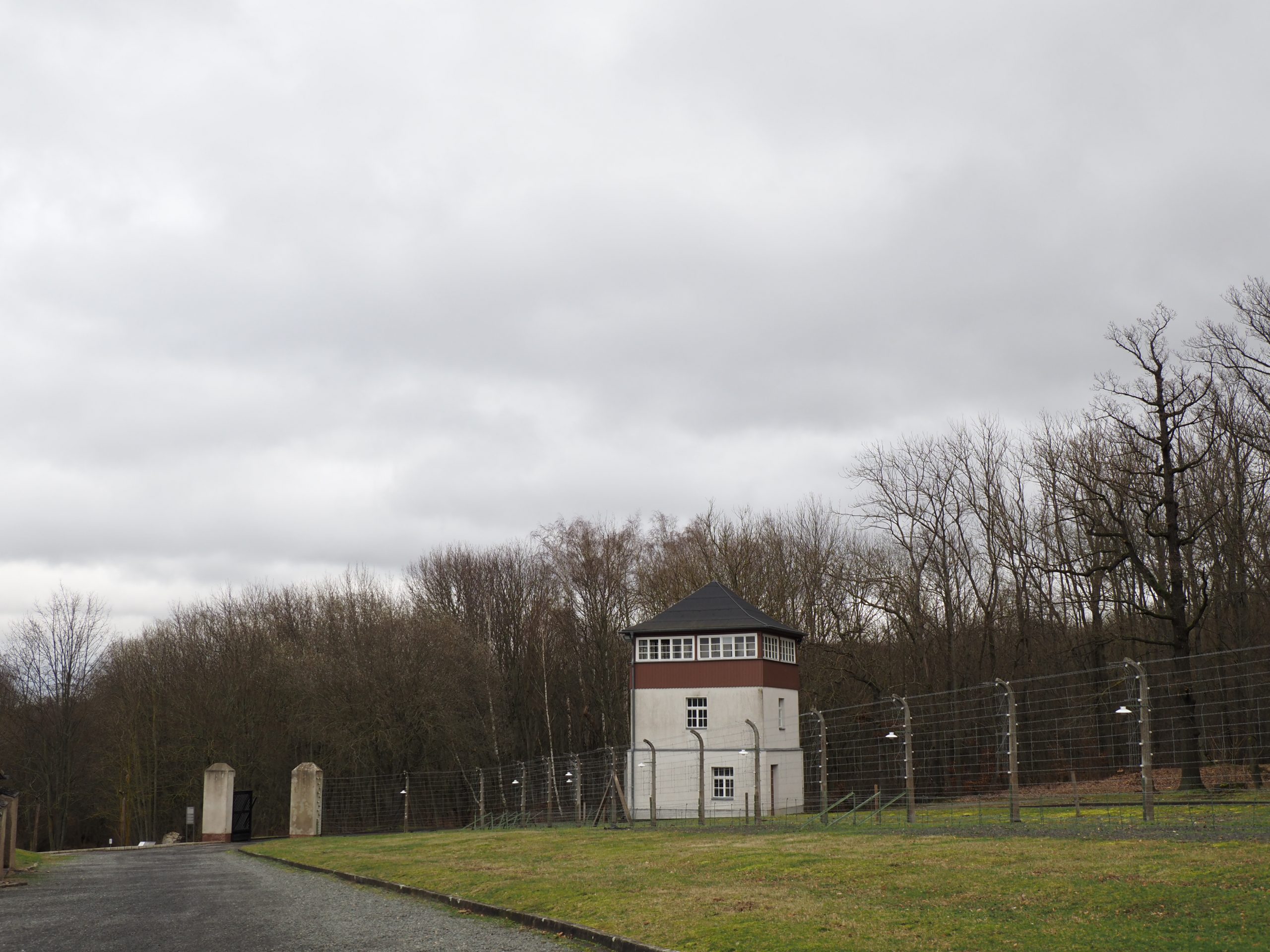Identity at the Bar
Takes from a German-Israeli workshop on the thriving of hate in contemporary politics
Fridolin Sablatnig

The cast: An Israeli political scientist, a 29-year-old German PhD in Philosophy, and two 18-year-old Austrians working at memorial museums in Riga.
The location: A sticky table at a sports bar in southern Dresden, Germany, filled with card-playing locals. In the background, on television, Eintracht Frankfurt playing Union Saint-Gilloise.
The scene: Late February. Rather cold, no rain. Three half-empty Feldschlößchen Pils (a local beer), the remnant of a Sprite, and the last piece of garlic bread.
The odd-looking group is talking about the connection between hate and identity.
Before ending up in the sports bar, the four of us visited one of the darkest places of German history: The memorial site at the former concentration camp Buchenwald, where the Nazis imprisoned and killed Jews, political enemies, Roma and Sinti, homosexuals, and others who were deemed unworthy in the Nazi “utopia.”
Besides learning about the horrible conditions, the history, and the atrocities that took place in the camp, we learned about a topical controversy. Officials of the AfD (Alternative für Deutschland/Alternative for Germany) party are excluded from memorial events at the site because of disgraceful comments about Holocaust remembrance culture in Germany members of the party made and the anti-democratic and hate-focused campaigns the party leads.
The AfD is currently leading the polls by more than ten percent in the upcoming elections in the federal states of Thuringia and Saxony (to be held September 1). Ideological equivalents employ similar strategies of spreading hate in several other European countries, including Austria, and are doing equally well.
It is not easy to answer why such populist parties are on the rise recently, but it is vital for us to make the effort if we wish for liberalism to survive.
The group with which I visited Buchenwald took part in a workshop organized by the Center for the Study of Contemporary European Jewry at Tel Aviv University, the Technical University Dresden, and the German-Israeli Foundation. It brought together 18 young German and Israeli scientists from diverse disciplines to share perspectives on hate. The three-day program consisted of presentations and excursions, including to Swiss Saxony.
A common theme shared in almost all the presentations was the distinct connection between identity and hate – that is, between how people understand their identity and the strong sentiments of resentment they develop.
We are currently witnessing a crisis of identity in the Western world, and it is leading to very concerning developments.
After the collapse of the Soviet Union and the fall of the Iron Curtain, the communist enemy was gone. Western values had prevailed against a radical and largely fake form of socialism but lost the rival that defined them and infused their national and political being with meaning.
NATO and the EU successfully expanded east throughout. Political ideologies become secondary. So did national identities. The differences between major political parties became miniscule. Cultural diversity flourished and migration increased.
As a result, some people have been feeling that their values are attacked as outdated and that they are looked down upon by the liberal, city-dwelling leftists and dominant news outlets. That their voices are not heard and do not matter. That a party is going on, but they are not invited by the major parties.
The feeling of being left behind and without a viable, respected identity was cultivated by the abundance of “alternative” online media. “Alternative” media has been on the rise and living off the fear associated with lost identity.
Populists present simple answers. As we have learned throughout history, the simplest one is to look for a scapegoat. Present-day hate is not about revenge because there is nothing to avenge. This hate aims to give an identity.
Our world is developing faster than ever before. It requires adaptation. Populists resist adaptation and promise resistance. They argue for the preservation of the old world, of the old values. They warn of collapse, of decay.
Their narrative is false. Of course, we are not living in a utopia, but the world has probably never been a better place to live in. Populism is based on living in nostalgia while ignoring history books. Even radical approaches, like the deportations of people with migration backgrounds, as recently demanded by a right-wing meeting in Germany, would not bring back the “good old days” because they just never existed.
So what next?
We need to revitalize Western identity and imbue it with strong moral values as well as demands.
We need to give people a renewed sense of meaning and purpose within a democratic and liberal context.
We need to call out the enemies of the West, the enemies of democracy, but at the same time, seek greater inclusion of those who currently feel forgotten and left behind.
Our civil communities need to identify hate for what it is, show courage in supporting the victims, and punish the perpetrators accordingly.
We must not tire of explaining why certain narratives are untrue and what motivations stand behind spreading them. We must show the past for what it was to avoid repeating past mistakes.
This will not be easy to do, but it is the only way our precious liberties could survive.
That night, there were 30 people at the bar. According to the polls, 11 of them will vote AfD in September. But 19 will not. And all 30 enjoyed the same beer.
